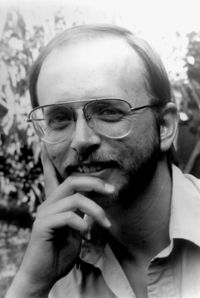A Quote by Dion Fortune
Esoteric science premises the existence of the Great Unmanifest, which may be conceived as a sea of limitless but latent force which underlies all things and whence all things derive their substance and draw their life.
Related Quotes
He alone is worthy of the appellation who either does great things, or teaches how they may be done, or describes them with a suitable majesty when they have been done; but those only are great things which tend to render life more happy, which increase the innocent enjoyments and comforts of existence, or which pave the way to a state of future bliss more permanent and more pure.
Whence came I, whither go I? Science cannot tell us a word about why music delights us, of why and how an old song can move us to tears. Science is reticent too when it is a question of the great Unity – the One of Parmenides – of which we all somehow form part, to which we belong. The most popular name for it in our time is God – with a capital ‘G’. Whence come I and whither go I? That is the great unfathomable question, the same for every one of us. Science has no answer to it.
Though we may never be able to comprehend human life, we know certainly that it is a movement, of whatever nature it be. The existence of movement unavoidably implies a body which is being moved and a force which is moving it. Hence, wherever there is life, there is a mass moved by a force. All mass possesses inertia; all force tends to persist
The Reader may here observe the Force of Numbers, which can be successfully applied, even to those things, which one would imagine are subject to no Rules. There are very few things which we know, which are not capable of being reduc'd to a Mathematical Reasoning, and when they cannot, it's a sign our Knowledge of them is very small and confus'd; and where a mathematical reasoning can be had, it's as great folly to make use of any other, as to grope for a thing in the dark when you have a Candle standing by you.
Science regards man as an aggregation of atoms temporarily united by a mysterious force called the life-principle. To the materialist the only difference between a living and a dead body is, that in the one case that force is active, in the other latent. When it is extinct or entirely latent, the molecules obey a superior attraction, which draws them asunder and scatters them through space. This dispersion must be death, if it is possible to conceive such a thing as death where the very molecules of the dead body manifest an intense vital energy.
Knowledge signifies things known. Where there are no things known, there is no knowledge. Where there are no things to be known, there can be no knowledge. We have observed that every science, that is, every branch of knowledge, is compounded of certain facts, of which our sensations furnish the evidence. Where no such evidence is supplied, we are without data; we are without first premises; and when, without these, we attempt to build up a science, we do as those who raise edifices without foundations. And what do such builders construct? Castles in the air.
But if men would give heed to the nature of substance they would doubt less concerning the Proposition that Existence appertains to the nature of substance: rather they would reckon it an axiom above all others, and hold it among common opinions. For then by substance they would understand that which is in itself, and through itself is conceived, or rather that whose knowledge does not depend on the knowledge of any other thing.
Here lies interred in the eternity of the past, from whence there is no resurrection for the days - whatever there may be for the dust - the thirty-third year of an ill-spent life, which, after a lingering disease of many months sank into a lethargy, and expired, January 22d, 1821, A.D. leaving a successor inconsolable for the very loss which occasioned its existence.
Of the eternal corporeal substance (which is not producible ex nihilo, nor reducible ad nihilum, but rarefiable, condensable, formable, arrangeable, and "fashionable") the composition is dissolved, the complexion is changed, the figure is modified, the being is altered, the fortune is varied, only the elements remaining what they are in substance, that same principle persevering which was always the one material principle, which is the true substance of things, eternal, ingenerable and incorruptible.







































